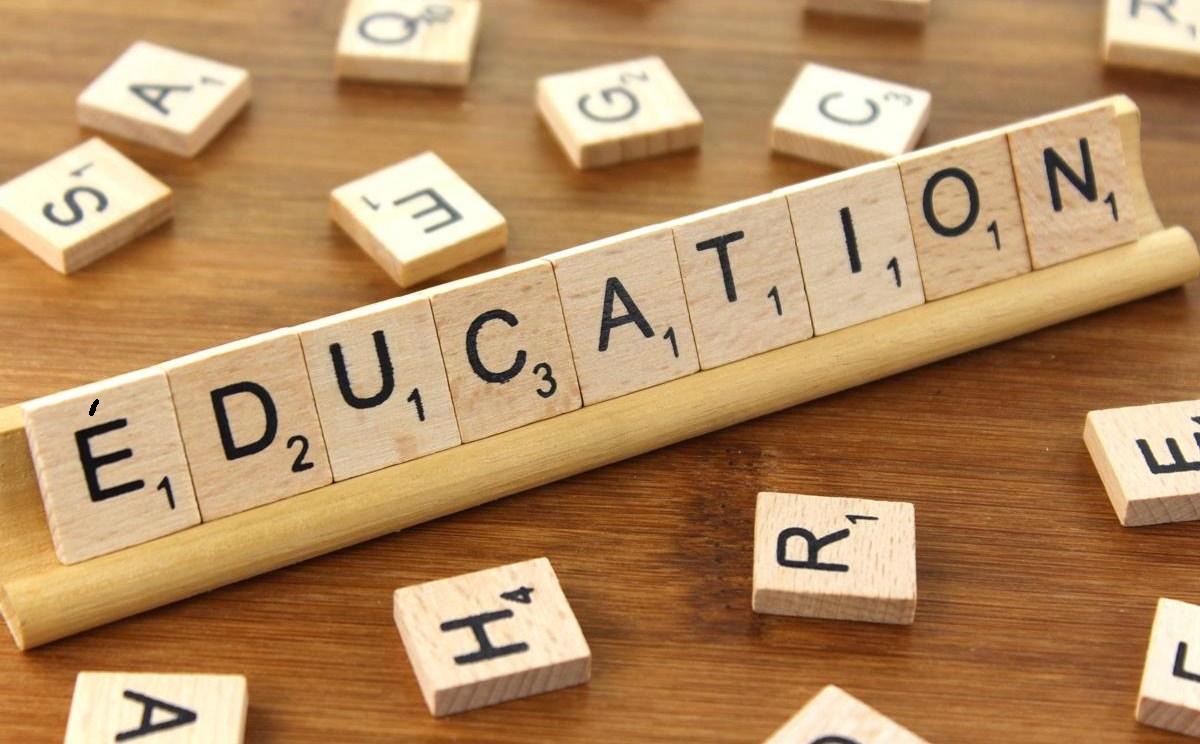15 March 2018
“This is evolution; we need a revolution!”
Macron’s education reforms don’t go far enough.
By Richard Pooley

Before I came to live in France I knew three things about the French education system. First, on any given day at exactly the same time all primary school children in the same school year would be being taught the same thing in exactly the same way. Secondly, every secondary school student had to sit a philosophy exam as part of the final year baccalauréat (the bac). And thirdly, the tough school regimen and wide range of subjects studied for the bac produced teenagers better educated than their British peers. Well, one right, one wrong and one half-right. Award yourself 10 out of 20, Pooley, and pull your socks up (below 10 is a Fail in France).
Yes, everyone doing the bac still takes the philosophy exam, and even Macron has not dared change that in the reforms to the education system announced last month by Jean-Michel Blanquer, the Education Minister. But as a former primary school teacher told me only this week, whilst the French education system remains highly centralised and standardised, there is much greater flexibility as to what is actually taught in primary school than there used to be. She told me how she and her colleagues would fool Education Ministry inspectors into believing that they were slavishly following the curriculum and timetable as laid down by their bureaucratic colleagues in Paris but then do what they thought best for their pupils once the Men from the Ministry (it was usually men, she said) had gone. However, my fond impression that the French system got better results than the English and Welsh one was my biggest error.
More than 20% of French children from working class households leave school without any diploma, compared to 7% of children from households headed by senior managers. This gap is worse than any other OECD country. Even those who get to university, open to all who pass the bac, often fail to finish their courses. Only 27.5% of students at French universities get a degree after three years. Meanwhile more and more French children are leaving school barely able to read, write or do basic arithmetic.
Macron promised during his presidential campaign to reform the bac and he is doing so. The number of subjects studied and examined will be halved, so that pupils can focus more on what they are most interested in. This, it is hoped, will make it easier for them to follow the academic path most suited to them when they go on to higher education. Brits will smile when they hear that another major change is the much greater emphasis that will be placed on continuous assessment throughout the last two years of secondary school. Even the final bac exams will not all take place at one time; they will be spread between April and June.
There are other changes being made elsewhere too. Greater emphasis will be given in the early years of a French child’s school life to improve reading, writing and numeracy skills. How? By allowing more time for them and making sure teachers know how to teach these basic skills. And from September this year, schools in poor areas (almost all of them in cities and dubbed ZEPs – “Priority Education Zones”) will have no more than 12 pupils in a class. Much more investment is to be made in helping children with learning difficulties such as dyslexia, dyspraxia and Attention Deficit Hyperactivity Disorder. Up to now French teachers have not been trained to spot these problems and deal with them. Entry to a French university will no longer be automatic, provided you have passed the bac. For the first time ever, a student’s actual marks in the bac will be taken into consideration by a university and so will the disciplines that the student has specialised in.
But are these changes enough? Not according to Paris-based British academic and journalist, Peter Gumbel. In 2010 he published “They Shoot School Kids, Don’t They?” in which he castigated the French education system for its many failings. He had first-hand experience of it; his two daughters, then aged 10 and 13, were going through the system. And finding it harsh, boring and demotivating. Despite being a foreigner and a hack – but maybe because he was a lecturer at one of France’s most prestigious grandes écoles, Sciences Po – not only did his book become a best-seller in France, many in the educational establishment agreed with him. And so, apparently, did a young banker who was soon to become Economy Minister and then President. In recent years Gumbel has continued to say that schools are failing. In 2015 he published another book – Ces écoles pas comme les autres – describing the alternatives to state schools, e.g. home schooling, Montessori, Waldorf and an increasing number of independent private schools.
So what more should be done, according to Gumbel? His biggest gripes are that teachers can’t teach, the system stifles creativity and allows no autonomy, and that there is almost no encouragement or fun for children throughout their 14 years of schooling.
Teachers are selected almost entirely on whether they know their subject. They are not taught how to manage a classroom or inspire their charges to learn. So bad is the reputation of French teacher-training colleges that President Sarkozy shut them all down. His successor, Hollande, reopened them but there is little sign yet that they have improved. In a way I can testify myself to how bad French teachers are at teaching. I was a trainer of businesspeople for most of my working life. Many of them were French from major international companies. I and my colleagues lost count of the number of times we and our teaching methods were compared favourably with what our French participants had experienced at school. To make things worse for the untrained French teachers, it is still normal in France for new teachers to be sent to failing schools in the ZEPs. Sink or swim seems to be the idea. Most sink, as told to me by the retired primary school teacher I mentioned earlier. She spent the first few years of her teaching career working in a school in what she described as a bidonville – a slum – on the edge of Paris.
Gumbel has also begged the French to decentralise their education system and let teachers have far more autonomy in the classroom and school principals far more control over their schools. At present, and there is little sign that Macron is changing this, the curriculum, the timetable and the allocation of resources are all decided by the Education Ministry and woe betide you if the Ministry’s inspectors find you have ignored those decisions. A school principal can only hire a particular teacher by seeking an exemption from the normal rules which insist that promotion and recruitment are based solely on seniority.
But Gumbel is angriest at just how tedious and mind-numbing life is inside a French school. There is still a lot of rote-learning and a heavy emphasis on labelling. Take reading, for example. There is almost no reading for pleasure. A child reads so that he or she can learn grammar. From the age of eight, children spend hours learning “the nature and function of words”; they have to be able to call each grammatical and linguistic structure by the correct technical name. This emphasis on learning by heart and labelling gets even stronger in secondary school. And sport, playing games, putting on plays? Forget it. These are largely done outside school.
I asked Chantal, the ex-primary school teacher, what she thought of Gumbel’s criticisms and Macron’s reforms. She had known I was going to ask her before I met her. So, she had got the opinions of her daughter, a primary school teacher, and her feisty and highly intelligent thirteen year-old grand-daughter. The three of them disagreed on what needed be done. But all three agreed that the current system is broken. Chantal herself said that what Macron was proposing gave her hope. But, she declared: “C’est une évolution; on a besoin d’une révolution!”


